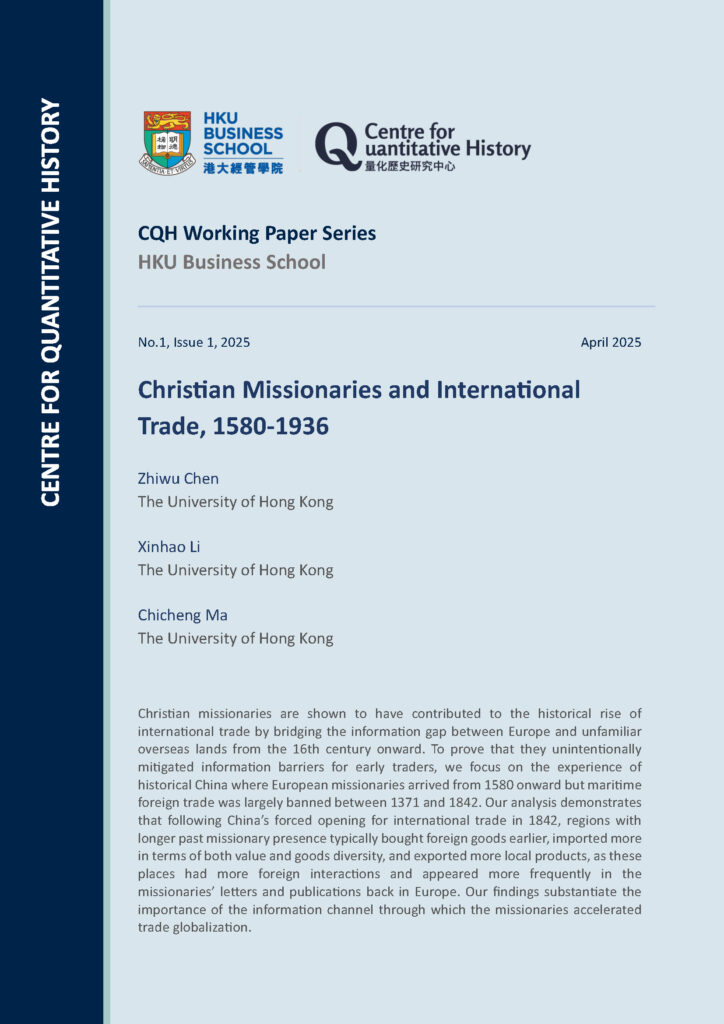





Christian missionaries are shown to have contributed to the historical rise of international trade by bridging the information gap between Europe and unfamiliar overseas lands from the 16th century onward. To prove that they unintentionally mitigated information barriers for early traders, we focus on the experience of historical China where European missionaries arrived from 1580 onward but maritime foreign trade was largely banned between 1371 and 1842. Our analysis demonstrates that following China’s forced opening for international trade in 1842, regions with longer past missionary presence typically bought foreign goods earlier, imported more in terms of both value and goods diversity, and exported more local products, as these places had more foreign interactions and appeared more frequently in the missionaries’ letters and publications back in Europe. Our findings substantiate the importance of the information channel through which the missionaries accelerated trade globalization.







